The Ministry of Defence (MOD) has announced its most sweeping reforms in over 50 years, aimed at tackling inefficiencies in defence procurement and reinforcing the UK’s defence capabilities.
Central to these changes is the introduction of a new National Armaments Director (NAD) role, described by Defence Secretary John Healey as essential to a “stronger, more agile defence structure that can ensure Britain’s security and deliver value for taxpayers.”
The move follows critical reports, including from the Public Accounts Committee, which highlighted issues in the UK’s defence procurement system, described as “broken.” The reforms come at a time of heightened global tensions, with growing Russian aggression and unrest in the Middle East.
According to the MOD, these developments underline the need for a more resilient and rapidly deployable military infrastructure.
The newly created NAD role will be responsible for delivering essential military capabilities, steering the upcoming Defence Industrial Strategy, ensuring the resilience of the UK’s supply chain, and leading on defence exports and procurement reforms. Recruitment for the role has already begun, and the MOD is keen to appoint a candidate who can deliver on its ambitious goals.
Andy Start, Defence Equipment & Support CEO and the current NAD, emphasised the importance of the role, calling it a “vitally important step towards transforming defence acquisition and building a stronger industrial base for the UK.”
Responsibilities for the National Armaments Director include:
- Delivering capabilities necessary for defence operations
- Shaping the forthcoming Defence Industrial Strategy
- Ensuring a resilient supply chain and national defence readiness
- Leading defence exports and acquisition reform
- Coordinating with government, industry, academia, and international partners to deploy best practices
The reforms also introduce a Military Strategic Headquarters (MSHQ), to be led by the Chief of the Defence Staff, who will take command of the individual Service Chiefs, aiming to unify decision-making and improve operational readiness. The MOD says the changes will help to ensure faster, more coherent investment decisions across services, particularly as it prepares to publish the Strategic Defence Review next year. By bringing investment decisions closer to the operational level, the MOD believes it will better align resources with defence priorities.
As part of the reform, Healey reiterated the importance of efficiency, pledging to crack down on wasteful spending across all aspects of defence. “Our government is delivering the change we promised: cracking down on waste and boosting Britain’s defence industry,” he stated.
MOD officials are particularly focused on building resilience and drawing lessons from the department’s support to Ukraine, citing the success of Operation Interflex and the quick deployment of equipment to the Ukrainian front lines.


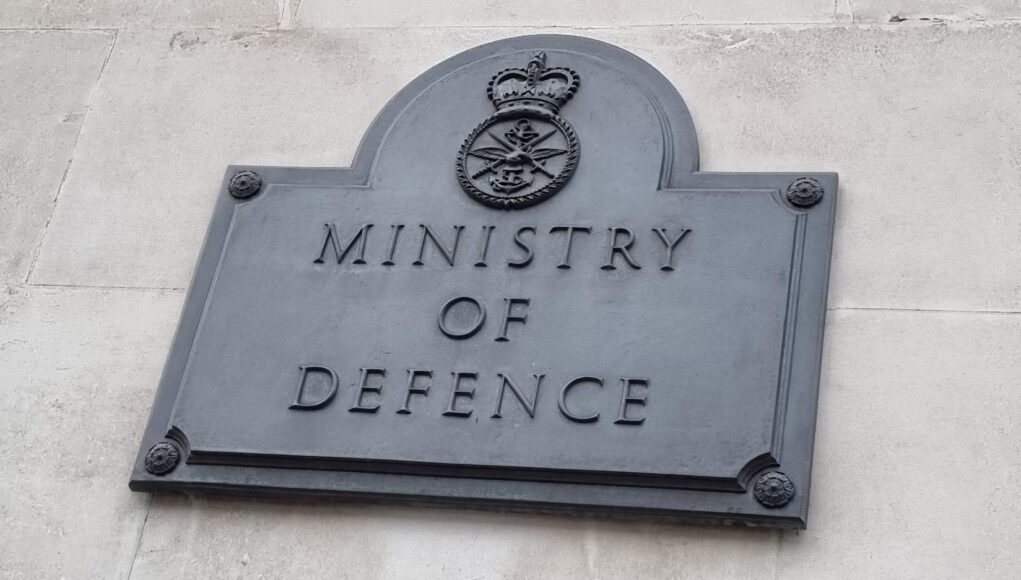
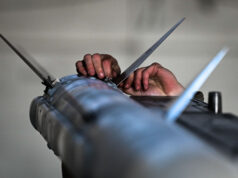

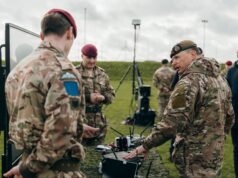
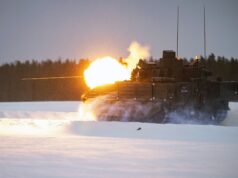
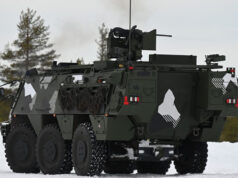

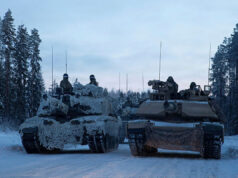

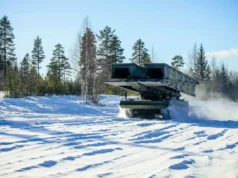
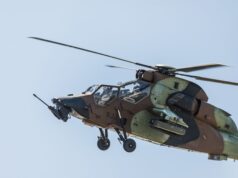

I’m curious as to why this has happened before the defence review? Surely you would want to base any restructuring on advice from that review, or at least have sight of it before making any policy changes.
It’s like any new goverment or new management in a private company, change everything so you look like your doing something even if it’s just change for change sake.
Whenever they don’t like some outcome, government has a tendency to add another layer of governance, although they still can’t figure out why everything moves more and more slowly.
This was a Labour pre-election promise. The SDR exists to validate how the MOD spends money, not to comment on politicians ideas. They believe a vote to throw out the previous idiots gives every policy across the board of the incoming idiots a carved-in-stone mandate and it would be anti-democratic for independent experts to test those ideas.
One thing that has defined British business over the last 20 years has been the addition of layers. They call it sub-contracting. What it means is money is extracted at more levels and that the distance between the supplier and the customer is ever greater.
We fall into the same trap every time. ‘Industry’ is no more efficient and competent than government. Just look at the sectors that have needed susbstancial and continued handouts from the Treasury.
What’s the betting that this just gives the MoD another high end wage to pay. #jobsForTheBoys.
That’s not a bet, that is a certainty. I wouldn’t have any issue with paying someone or a group of someone’s a lot of money if there was actually benchmarked deliverables but there never is.
No.
The article indicates that CEO DES is the current NAD.
If that post is NAD, then it already existed.
The CEO of DES already exists, he oversees Defence Procurement.
Before that, the role was known as CDM Chief of Defence Materiel.
Before that, there was a Chief of Defence Procurement and a Chief of Defence Logistics.
Before the DLO came into being, we had the DPA ( Procurement Executive ) and the single service logistics organisations were amalgamated.
Until I get into the details of this, it seems little more than a name change with a few extra roles.
Typical HMG spin basically.
Indeed from what I read it was adding roles an already large job portfolio and changing a job title.
So a strategic command layer and a director of National Armaments, is this seriously what’s needed. Open question to the ex service bods on here.
Someone with common sense who can keep the good idea club at bay is vital.
Who understands minimum viable product and quantity are things.
The main thing is consistency and pipeline.
This moves things away from army saying QEC ate my tanks etc.
Another head honcho to manage the existing head honchos? So much of what we need to do is down to budgets. If there is enough money to develop and order the kit the services need, then issues like upping our defence manufacturing industry, stockpiling armaments, a continuous drumbeat of orders and the export opportunities will star to solve themselves.
On squeezed, hopelessly inadequate defence budgets, everything becomes a difficult choice. We are short of everything. Money spent on F-35 means no more Typhoons. Money dictates the selection of a wheeled mechanised troop carrier, rather than the necessary tracked but more expensive AIFV. If we get Castle, MROS and MRSS, then no money for a t32 frigate (whatever that is).And so on, everything is a contest between competing claims.
Don’t really see how a new head honcho will help that much. Either we are pivoting to NATO, in which case the RN becomes the junior service, or we are going to muddle along trying to be all things to all people. Unless the defence review us crystal clear on this issue, and the additional 0.5%% of GDP is provided, i fear that. the new chief honcho is going to just face the same old problems.
“…Either we are pivoting to NATO…”
A contradiction, I think!
The PM just said after the Commonwealth meeting, the RN needs more presence in the Indo-Pacific. So more T31’s?
‘More presence in the Indo Pacific’ is probably political shorthand for more CAPABILITY, rather rather than more ships, which we don’t have. i.e. the replacement of 3 minor operational warships out-of-area (River 2) by 3 major warships (T31 FF).
If there is a ontradiction anywhere, it is between the SoS, whose guys are leaking a shift to NATO, and the PM, who was questing for something positive to say to his island hosts.
The bottom line it seems to me is that NATO needs the UK to contribute two ASW capabilities in Eastlant to counter the Russian submarine threat to shipping, an ASW squadron and a hunter-killer submarine one. We can currently provide neither, because the 3 or 4 operational submarines are already deployed on other duties and we have about 2 operational escorts free once the CSG sails East.
Therefore, we need either more escorts and subs, which we won’t get, or to shift such as we have to a predominantly Atlantic role.
Hard choices, but we simply do not have the numbers to do both and our commitments to both are pretty wafer thin and nominal.
“…We can currently provide neither, because the 3 or 4 operational submarines are already deployed on other duties…”
Just not true! Only one Astute sub has been deployed recently on a CSG exercise, , out of five and one old sub, that are stuck in port for some reason.
Even in the 1970/80’s when the UK was more NATO focus, the RN still managed to do out of area deployments when necessary. It was not a NATO only policy in the Cold War!
I think we all know that all bar one of the Astutes are queuing for maintenance/repair/whatever and not currently available Meiron. It has been covered often enough on here!
Point is, when all 7 are delivered and working, we won’t have enough to provide more than a limited presence in the NATO area. Who knows what the SSN deployment plan is, but at a guess, it is something like:
With at sea SSBN: 1
With CSG: 1
Out-of-area, Indo Pacific. 1
Out-of-area, South Atlantic/Med/Middle East: 0
Eastlant )
High North) 1
Maintenance/repair/refit/alongside: 2-3
My point was that we have very little submarine capability in the NATO area, maybe 2 at most. Versus some two dozen Russian subs which could be heading our way in the event of conflict.
Norway, Netherlands and maybe Germany would add half a dozen SSKs in the north-east Atlantic area, but that is still a very small force.
The conclusion to which is that we need at least one more Astute squeezed out of Barrow, however difficult that is in the face of Dreadnought building, and acquisition of half a dozen modern, lithium battery-powered SSKs COTS.
That would be wholly dependent on getting from 2% to 2.5% of GDP over the 2025-2035 timescale and doubt we could afford more than 2 SSKs by 2035. But we need to make a start, as the most effective submarine killer is another hunter-killer submarine, rather than a surface ship.
I took that to mean hes spinning the fact an SSN is due to go out there.
There you go! We increased our Pacific commitment.
A year ago this lot were bemoaning anything East of Suez….🙄
Questioning the strategic balance I think Daniel, rather than ‘bemoaning’. Which is a rather pejorative word for those who do not share the navy-first viewpoint so predominant on here.
If anything, the NDA should come from Industry. Have the head of DE&S as head of NDA just increases the “group think” within Defence Procurement.
They need a radical thinker, with some skin in the game, but not constrained by MOD Think.
The Head of DE&S has always acted as our NAD. This latest initiative is to designate a new person independent of DE&S as NAD.
Have a read of the article in the FT, it’s a bit more sensible than it sounds. It effectively puts the CDS as operational / strategic head of all the service chiefs and they report to him rather than Healey (so it’s a bit like the US system). And they want someone who is industry savvy as NAD, it’s not what I thought it was.
It was subscribe only I couldn’t open it.
So this MSHQ is separate from Strat Com and PJHQ?
I haven’t read the article yet. But your summary sounds like nothing new.
The Chiefs of Staff Committee, chaired by the CDS, is already the operations/strategy point for the uniformed services. That bit of the MOD structure works pretty well.
It works pretty well too at the principal forum, the Defence Council chaired by the SoS. The 6 senior uniforms match the 6 politicians and civil servants, though not sure that the civil service participants should be more than secretary to the committee, rather active protagonists.
IMO, it goes downhill when it comes to the executive, the Defence Board and its myriad committees, of which there are at least 8 or 9.
The DB has 13 politicos, civil servants and non-executive civilians and just 2 senior service members. I doubt most of them would pass a basic knowledge test on things military. The discrepancy is even more marked in the committees.
Basically, the decision-making process seems to be rather swamped with civilians and civil servants, rather than senior officers who know what they’re talking about. I wonder if a lot of the problems with procurement, recruiting etc are not down to this disproportionate abundance of well-meaning but not militarily clued-up civvies.
I am less convinced about the role of the NAD, other than setting operating principle and practises.i count at least 80 classes of vehicles, aircraft, ships and weapons, all of which need to be moving along in order to meet a 20-30 year replacement schedule. Looking at the budget available and the scale of the tak, I don’t envy anyone applying to be NAD. He/she will certainly need to shake up and redefine the procurement categories, the long-tetm budget allocated to each and a hard line on what can be afforded/developed and what can not.
“The Chiefs of Staff Committee, chaired by the CDS, is already the operations/strategy point for the uniformed services. That bit of the MOD structure works pretty well.”
I agree, and the Ops side below in Main Building, under the VCDS down to DCDS Ops to ACDS Ops / then below the Ops Directorate / DCMC and so on.
It already exists.
Thanks. I thought the service chiefs currently did report to CDS, not Healey.
NAD absolutely has to be industry savvy. I do not see the need for someone other than Head of DE&S to do this role, unless the new NAD has to be very critical of DE&S.
Ah, so CEO DES won’t go on to be duel hatted as NAD too?
Ok.
If not, it’s just a name change.
I am assuming that, otherwise it is not a new initiative.Maybe they want the new NAD to hold DE&S to account?
Need to get to the nitty gritty on this one beyond the headline.
I wonder what the average number of years there is between the latest sweeping reform in procurement, probably less than 5. Yet things seem to be getting worse rather than better. Maybe it’s time to stop and let the latest reform have time to actually deliver before changing everything again.
So does this mean that Defence Equipment & Support will be under the management of Military Strategic Headquarters (MSHQ) 🤔
No, I don’t think so.
DES and higher command in MB are very different things.
When an incoming Governmenr describes everything as broken they are just stating for the record that it was not them that broke it. Then if they employ someone to do the job in future then you have someone to blame when it all goes wrong. What can we deduce from this – the Government haven’t a clue what to do and are hoping to employ someone who does. A lot depends on who they appoint.
Blimey this person is going to be a real miracle worker. 🤣
More of the same old song: McNamara’s whiz kids are gonna come through we just need to hire enough of them.
Anybody know what the SDR is going to say ? With announcements every other day the MOD scribes will be exhausted by the spring.
If it works it’ll be a breath of freash air. Things often seem so bad that you’d think things are run for the benefit of our Russian & Chinese enemies.
IRL apart from a few balls ups most things MoD are done very well and to budget.
The issue is that 2% budgets are not enough…
“The nine most terrifying words in the English language are, ‘I’m from the government and I’m here to help’.”
What’s the ninth word?
Also nobody complains when troops are doing MACA and save peoples bacon, even though their from the government.